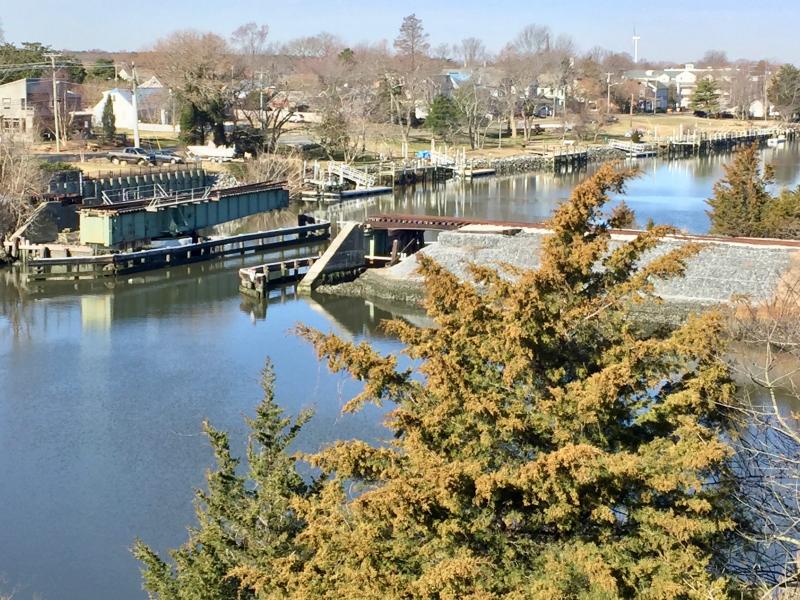Reddening cedars showing impatience of spring
Spring has a serious insistence to it this year. February is as fleeting as ever, and March brings the vernal equinox. The temperatures will be up and down, but we grasp the good days, wait for the bad days to pass and, as Jerry Jeff Walker sings: “Let the high times carry the load.”
But as I was saying, spring doesn’t want to wait this year for the calendar. Thousands of tulip bulbs planted in Lewes have already sprouted and are up a couple of inches. Daffodils and hyacinth leaves are keeping them company. And last weekend, when the weather made it nice for the Presidents’ Day holiday, the birds caught on early and were singing different songs, happier songs.
No question we’ve had a mild winter without much prospect for any serious cold snaps ahead. Just the way the jet streams are flowing this year. Never count out a late snowstorm, but they don’t last for long after February leaves.
We will have a cold spring because we always have a cold spring. Being next to the Atlantic, which takes its own sweet time warming out of the 40s, guarantees the chill of our springs. The good news is that the chill keeps the blooming flowers fresher and more long-lived.
The canvasbacks are hanging out on Silver Lake in Rehoboth, and on Wagamons Pond in Milton, Canada geese are enjoying the mild weather. Late-migrating ring-neck ducks have also shown up. If the weather continues mild, they will all be gone before long and we’ll be looking out for ospreys to return.
One of the most indigenous of our local trees is the so-called red cedar. I wondered for a long time why a tree as green as a cedar would be known as a red cedar. But this is the time of year when the name becomes more understandable. The buds of the red cedars come early in the spring, and when full morning and afternoon sunlight pushes up under the branches, the redness of the buds casts an orangey glow over the entire tree.
Walking over Freeman Highway on Saturday morning of the Presidents’ Day weekend, the day warming quickly and lots of people passing on their bicycles, I stopped on the bridge to take a look at the old railroad bridge. There in the foreground stood several red cedars, and they were showing off the color of their name. In a month or so the darkness of their green will once again take over, but that’s not what makes them distinctive, so now’s the time to appreciate them.
Status of the bridge
A few weeks back, Lewes Mayor Ted Becker said the last he heard on the status of the railroad bridge was that no repairs are planned for at least three years, which means it will be shut down to all train traffic indefinitely, but for at least that amount of time. “It’s one of only a couple of man-powered railroad bridges in the country, and I think the only one east of the Mississippi,” said Becker. The bridge rotates back and forth over the Lewes-Rehoboth Canal on a steel gear about 10 feet in diameter. A man inserts a heavy T-handled key into the gear and then pushes it around in a circle to move the bridge.
Simple mechanical transfer of power. Probably takes about two cheeseburgers’ worth of strength to open and close the bridge.
But the bridge is idle now after an inspection several months ago determined the stone foundation for the bridge and its approach on the beach side of the canal was beginning to slump. Inspectors for DelDOT said there was no guarantee the foundation wouldn’t fail completely, possibly dropping a train into the canal, so it was closed by the state.
SPI Pharma, located on Lewes Beach near the entrance to Cape Henlopen State Park, mines minerals out of seawater and uses chemical processes to segregate magnesium hydroxide and aluminum hydroxide for use in such products as antacids and deodorants. It is the only company in Lewes that created a demand for the proper functioning of the railroad bridge. It employed the Delaware Coast Line Railroad to haul tank cars to and from its facilities. With the bridge closed, the company now ships and receives product via tank trucks.
Becker said each railroad tank car carries a volume equal to four tank trucks. The additional truck traffic hasn’t caused a problem in Lewes, he said, because the trucks follow an early morning schedule.

















































